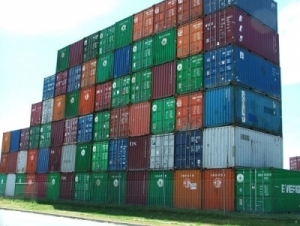Editorial: Happy days
OPINION: The year has started positively for New Zealand dairy farmers and things are likely to get better.
 The Government's much-publicised goal of primary exports hitting $64 billion by 2025 now looks like a pipe-dream.
The Government's much-publicised goal of primary exports hitting $64 billion by 2025 now looks like a pipe-dream.
The Government's much-publicised goal of primary exports hitting $64 billion by 2025 now looks like a pipe-dream.
Weak dairy prices are a severe drag on reaching the goal, as shown by the latest data from the Ministry for Primary Industries.
MPI's latest Situation and Outlook report, released last week, predicts that by 2020 exports will have reached just $44b; to achieve $64b would require 9.5% growth. The current growth rate is just 3.3%.
Dairy exports are down in value by 6% for the year ended June 2016 and MPI is not expecting any real recovery until 2018; even by 2020 the value of dairy exports is unlikely to equal the record high of 2014, the report says.
The future for meat and wool also makes glum reading, with just a 1% lift in prices.
Beef prices are expected to ease, but wool prices are at a five year record and are expected to remain firm because of lower production
The report says the two saviours of the economy have been the lower NZ dollar and the negligible effect of the El Nino summer weather.
Not surprisingly, horticulture – in particular kiwifruit and apples – turned up trumps with a massive 20% increase in value. Horticultural exports are now worth just on $5b and are predicted to rise to $5.7b in the next four years.
Transforming horticulture is the rise of kiwifruit, especially the SunGold variety. Kiwifruit exports are now $1.6b and are expected to hit $1.9b by 2020. Wine, apple and pear exports also contribute much to horticulture's rise in fortunes.
MPI says dairy will remain in the doldrums for at least another year until global stocks fall, which won't happen quickly. It predicts milksolids production in NZ will fall 1.6% in 2015-16, but will gradually increase to 2020.
The World Wide Sires National All Day Breeds Best Youth Camp Best All Rounder plaudit has become family affair, with 2026 Paramount Cup winner Holly Williams following in her sister Zara's footsteps.
DairyNZ is giving New Zealand farmers a unique opportunity to gain hands-on governance and leadership experience within the dairy sector.
Herd improvement company LIC has posted a 5.2% lift in half-year revenue, thanks to increasing demand for genetics.
According to the latest Fresh Produce Trend Report from United Fresh, 2026 will be a year where fruit and vegetables are shaped by cost pressures, rapid digital adoption, and a renewed focus on wellbeing at home.
The Roar is a highlight of the game hunting calendar in New Zealand, with thousands of hunters set to head for the hills to hunt male stags during March and April.
OPINION: The past few weeks have been tough on farms across the North Island: floods and storms have caused damage and disruption to families and businesses.

OPINION: Meanwhile, red blooded Northland politician Matua Shane Jones has provided one of the most telling quotes of the year…
OPINION: This old mutt has been around for a few years now and it seems these ‘once in 100-year’ weather…